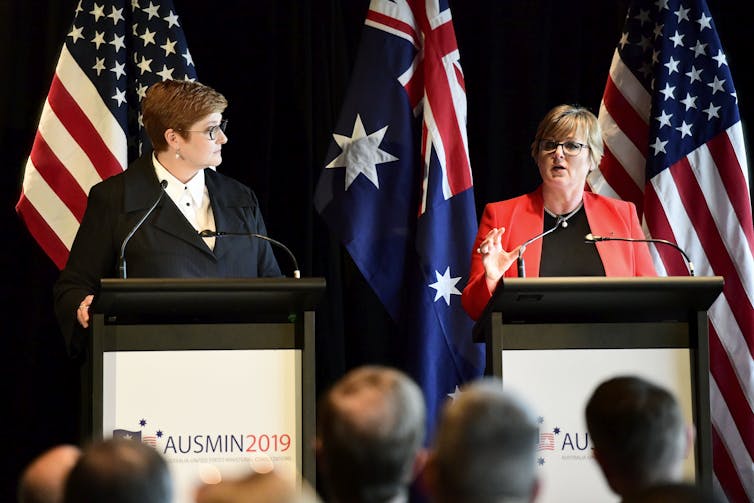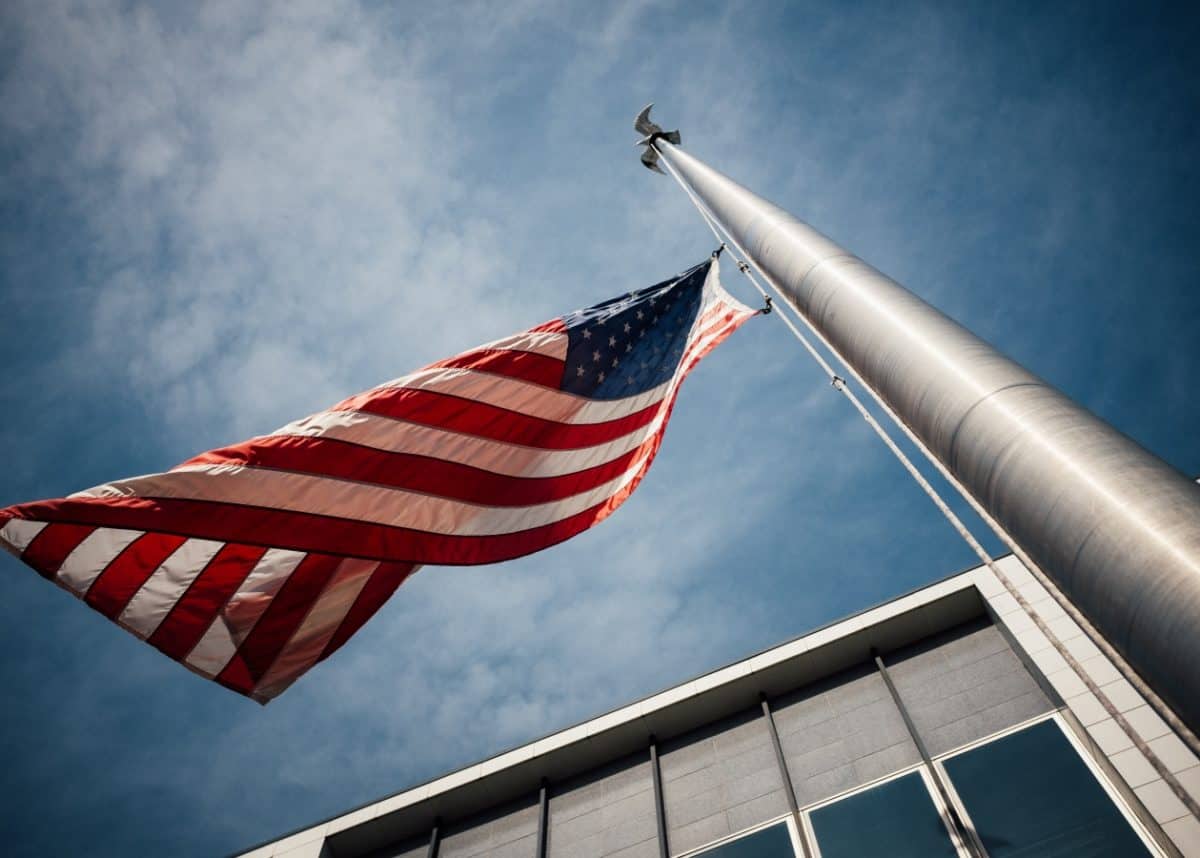Tony Walker, La Trobe University
Foreign Minister Marise Payne and Defence Minister Linda Reynolds should have some simple questions for their hosts in Washington this week, Secretary of State Mike Pompeo and Defence Secretary Mike Esper.

Is it the policy of the United States, either stated or unstated, to bring about regime change in China? Or are increasingly bellicose election-year statements, emanating from the White House, simply aimed at modifying Beijing’s behaviour?
Since the former can be dismissed as a realistic option, under almost any possible scenario, the latter represents a least-worst approach to dealing with the greatest security and foreign policy challenge in Asia since Japan embarked on its imperial crusades in the 1930s.
On the eve of this week’s Australia-US ministerial (AUSMIN) talks, Payne and Reynolds penned a largely proforma opinion piece in The Australian newspaper. It is full of the usual bromides about alliance solidarity in the face of a common enemy.
Nevertheless, one sentence stood out.
Never has it been more important that we, as allies, find every possible way to advance shared interests.
Actually, the ministers probably didn’t write these words themselves. They will have come from hawkish members of their staff, overseen by Scott Morrison’s own office.
You can be sure this piece, such as it was, will have passed through several hands in its various calibrations to take account of the awkward circumstances in which Canberra finds itself.
Whether it likes it or not, Australia is caught in a vice between its economic interests and security obligations. This vice is tightening to the point where attempts by Australian officials to pretend otherwise have long since ceased being credible.
So, what do the words “find every possible way to advance shared interests” actually mean?
In the past week, we have seen the first of several down-payments on this in the form of a re-statement of Australia’ position at the United Nations on China’s various territorial claims in the South China Sea.
Australia regards many of these claims as either invalid or inconsistent with international law. Its latest statement on the subject came in a letter to the UN that stated
the Australian government rejects any claims by China that are inconsistent with the 1982 United Nations Convention on the Law of the Sea (UNCLOS).
More significant than the letter’s wording, which echoes previous such statements, is its timing on the eve of AUSMIN.
Australia’s intervention coincided with the despatch of five Australian warships into the South China Sea and its environs, in partnership with US naval exercises that have been in progress for several weeks.
The Australian naval deployment might loosely be described as a freedom of navigation operation (FONOPs), but in reality this was a limited mission in which Australia’s warships did not venture within the 12-nautical-mile limit around islands and features claimed by China in disputed waters.
China hawks in Canberra, of which there are a plethora these days, may have been disappointed that a so-called FONOPs mission did not transit the 12-nautical-mile limit claimed by China.
In the circumstances, this restraint represented a prudent approach by the Morrison government: so far and yet not too far at this stage.
No doubt the question will have been posed in Canberra when considering the extent to which naval vessels should intrude into disputed waters: what might constitute sufficient warning to China of Australia’s opposition to its territorial claims?
What should go without saying is that in the half-century since Gough Whitlam normalised ties with the People’s Republic, relations have never been worse.
All the signs are that they are only going to get worse, recently demonstrated by additional countermeasures against Australian exports to China.
Thermal coal shipments, the wine, wool, beef and lamb trade are all vulnerable to Chinese reprisals. Beijing has indicated it will ruthlessly apply these sorts of sanctions if relations continue to deteriorate.
In their preparations for the AUSMIN talks, Payne and Reynolds should be especially mindful of a fraught political atmosphere in Washington in which a more aggressive approach to China has come to define US policy.
Secretary of State Pompeo’s speech last week at the Richard Nixon Presidential Library in Yorba Linda, California, stopped barely short of a call for regime change. He said:
If the free world doesn’t change […] Communist China will surely change us.
Pompeo, who is the Trump administration’s leading hawk, turned Ronald Reagan’s phrase “trust and verify” in his arms control negotiations with the Soviet Union on its head in his speech.
When it came to China, the world should “distrust but verify”, Pompeo said.
In their interactions with an administration fighting for its life and playing the “China threat” card for all its worth, Payne and Reynolds should think long and hard before committing Australia to courses of action inimical to its interests.
Payne might care to recalibrate the words “find every possible way to advance shared interests”. They carry unfortunate echoes of a previous commitment to go “all the way with LBJ”.
Tony Walker, Adjunct Professor, School of Communications, La Trobe University
This article is republished from The Conversation under a Creative Commons license. Read the original article.












